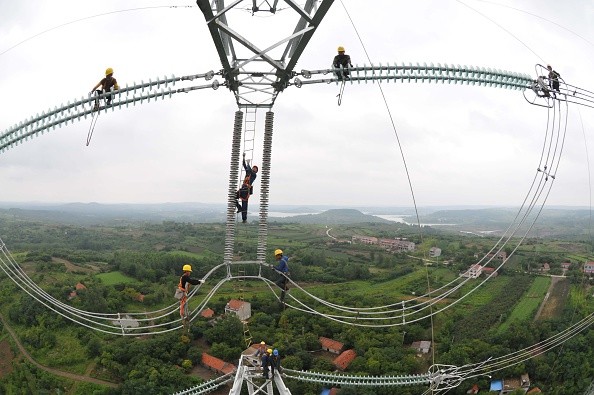In a bid to improve communication services to the locals of Nansha, China's top telecom carriers have launched 4G services to the islands located in the South China Sea, according to an article by China Daily.
The expansion is also regarded as a way to secure China's legal claim on the disputed territory.
The move comes after China dismissed the arbitral ruling of The Hague that China does not have a "historic title" over the South China Sea.
China Telecommunications Corp, the third largest telecom carrier in terms of subscribers, has extended its 4G signal to the island's seven reefs to give access among its residents to faster Internet speed.
This speedier connection will enable islanders to make video calls and even conduct and participate in China's growing e-commerce market.
For the past four years, the telecom has already poured in over 70 million yuan to construct infrastructure in the South China Sea.The State-owned firm revealed that it spent nine months to set up eight base stations surrounding the islands.
Meanwhile, China Mobile Communications Corp, China Telecom's larger competitor, also offered similar services.
After its successful 4G launch in nearby Xisha Islands, it has expanded its signal to cover Nansha's Zhubi and Yongshu reefs.
Xiang Ligang, CEO of the industry portal cctime.com and a veteran in the telecom indsutry, shared: "The achievement highlights China's determination to serve local people and passing ships. It also mirrors homegrown telecom companies' cutting-edge technology."
Though nestled in strategic shipping lanes, Nansha Islands are located far away from land areas, making it difficult, costly and time-consuming for telecoms to build infrastructures in the region.
According to Su Xun, an employee at China Mobile who is in charge of telecom equipment maintenance, it takes an average of 60 hours to get to the islands coming from the Hainan Province.
Apart from the travel time concern, telecoms also shared that their equipment are very much vulnerable to seawater corrosion. They also find it hard to secure stable supply of electricity to power its 4G stations and transmit signals.
Nonetheless, Su remarked that all possible problems that may arise have been taken care off, adding that "[their] efforts finally paid off."



























